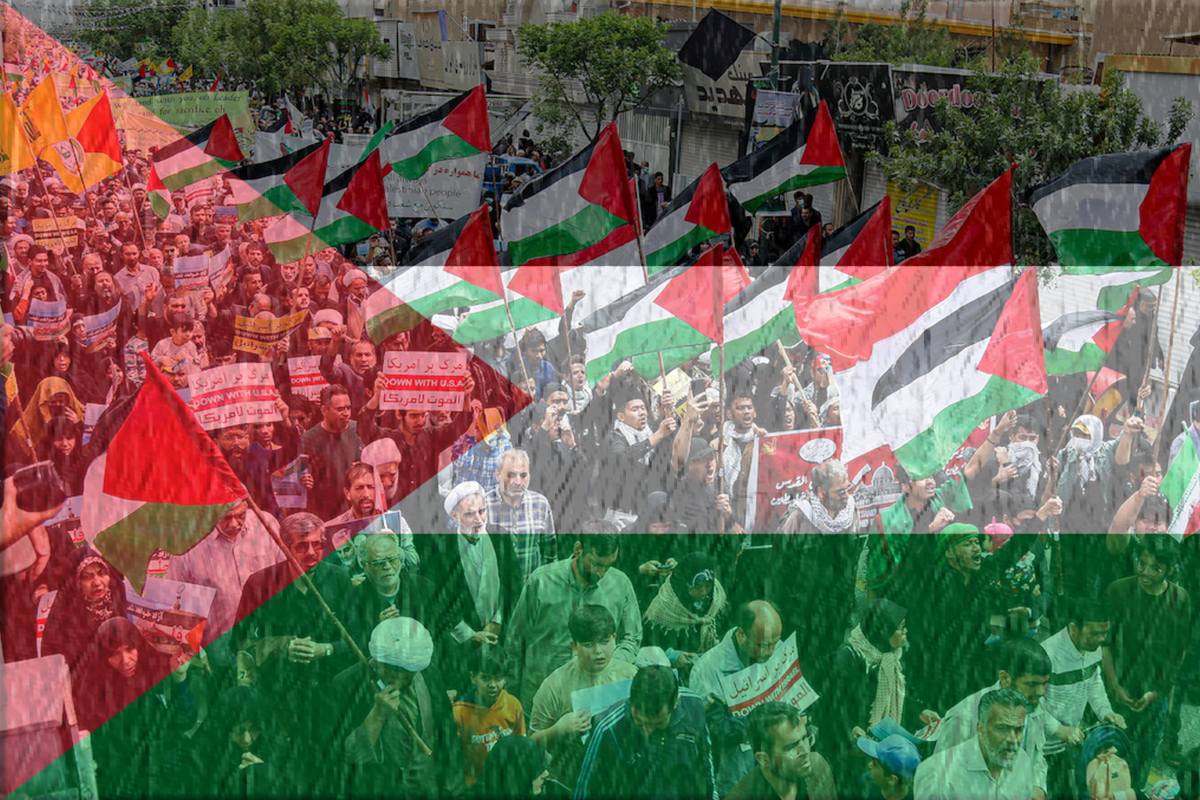When the Islamic Republic of Iran held its first Quds (Jerusalem) Day rallies early in the revolution, the state of Israel was barely more than 30 years old. Now, 45 years after the revolution, the Jewish state is no closer to being “wiped off the face of the map” than it was back then. In fact, its military strength and its close ties with the U.S., together with its dogged pursuit of Hamas after the 7 October 2023 attacks, seem to be pushing public officials in Iran to adopt a measured tone in the face of the most recent Israeli provocation against the Islamic Republic: the bombing of an Iranian consular building in Damascus that resulted in the death of seven IRGC personnel.
Failure to Export, Fewer Domestic Buyers: The Islamic Republic of Iran portrays Quds Day as an “international” event, but other than the occasional rally in an Arab or Islamic capital, and sometimes Western ones as well, the occasion has failed to catch fire globally. This year, Iranian media outlets have continued to harp on the “glorious” size of crowds showing support for the Palestinian cause. However, unlike the public funeral processions for Qasem Soleimani in 2020, in which they claimed anywhere from a quarter to a third of the population of the country participated, they are offering no figures on public turnout this year. Support for the Palestinian cause has been far weaker in Iranian society than Iran’s leaders have wanted to admit, but that fact became quite clear during the Green Movement of 2009 when large crowds chanted “Neither Gaza nor Lebanon, I give my life for Iran.” More recently, in the early days after 7 October, which Iran’s hardline media continue to tout as Operation al-Aqsa Storm, spectators in a soccer stadium who were waving Palestinian flags were subjected to obscene chants. One of the early advantages of Quds Day that has now become an Achilles heel is that it always falls on a Friday. In previous years the country’s leaders could depend on large crowds at Friday prayers. Now that by their own admission attendance at Friday prayers is at an all-time low despite the fact that they bus worshipers in, they no longer hear the booming chants of “Death to Israel” that they did in decades past.
Change of Focus This Year: Quds Day should be about the Palestinians, especially in a year like this when the world’s eyes are on the devastation in Gaza from the Israeli response to the Hamas attacks. Gaza officials have reported more than 31,000 dead so far, with some 13,000 of them being children. And yet the seven IRGC dead from Damascus have eclipsed the Palestinian cause. Their deaths have provoked far more anger among Nezam officials and are receiving far more widespread attention in the Iranian media, especially now that Supreme Leader Ali Khamenei himself has prayed over their coffins. This could very well raise the question in some minds as to how much the day really is about the Palestinian cause and how much it is about Iran’s desire to be seen as a player on the global stage. The Nezam’s mouthpieces are continuing to breathe fire, promising that Israel should expect a massive reprisal. Much of this, however, is merely for show. For instance, at the Quds Day rally in Tehran, Israeli PM Benjamin Netanyahu was hanged in effigy, but none of the featured speakers made any calls for material contributions to the Palestinians or for volunteers to gear up and go to Gaza or Lebanon to fight the Israelis.
“Strategic Patience” or Excuse for Inaction: When news first broke of the 7 October attacks, Khamenei was quick to deny any role by Iran, describing the assaults as entirely the work of Palestinian “youth.” Recent revelations are casting doubt on that claim. Nonetheless, the general narrative remains that Iran provides only moral support to Hamas and other members of the “axis of resistance.” All public officials, from military leaders to clerics, are agreed that Iran should and will respond to Israel. However, unlike hardline agitators who do not hold office and want to see immediate action, those in positions of authority want to proceed cautiously, promising that Iran’s revenge will come at an opportune time, most likely from Iran’s proxies (which already have an ax to grind with Israel anyway). A surprising example is Ahmad Alamolhoda, the Friday prayer leader of Mashhad and father-in-law of President Ebrahim Ra’isi. A consistent firebrand and loyalist of the Nezam, Alamolhoda is surprisingly counseling patience among his listeners for Iran’s response. In this regard, he seems to be uncharacteristically sticking to the script, as evident from other Friday prayer sermons that convey the same idea in more or less the same language. An alert social media user on X hinted at Alamolhoda’s hypocrisy, reminding readers that the assassination of nuclear scientist Mohsen Fakhrizadeh in late 2020, believed by nearly all to be the work of Israel, drew a much harsher response from the cleric, who denounced a measured approach back then as an invitation to more attacks. Now that his son-in-law is the elected president of the country, the user remarked, Alamolhoda is being far more careful.







